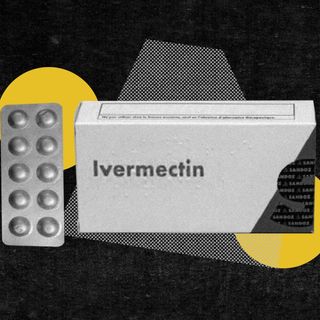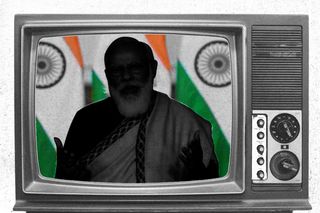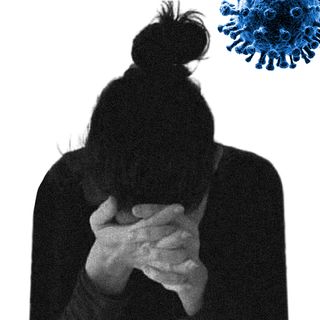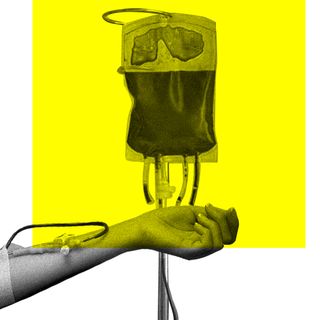
The Govt Celebrating “Power of Positivity” Is An Example of What Toxic Positivity Looks Like
The focus on ‘all is well’ in the face of grim reality pushes the onus of recovery onto citizens who are grappling with Covid19 trauma.

This month’s Mann Ki Baat, the Prime Minister’s serialized talk show, is set to celebrate the ‘strength’ of Indians by talking about stories of positive thinking. Putting on smiles and parsing the digital realm for optimistic accounts may be a coping mechanism — for the government as well as citizens. But amid a pandemic, which presents a macabre reality each passing day, the sunny-side-up approach morphs into toxic positivity.
At the outset: there’s nothing wrong with being positive: stories of inspiration, slivers of hope are in short supply and need replenishment every now and then. Feeling grateful for having a job, keeping your family safe, balancing work with personal life are small wins and help keep things in perspective. But positivity is not always the beacon of good vibes it’s made out to be.
During a dire, life-altering health crisis, the attitude easily becomes shorthand for denial, enabling institutional apathy, and letting people in power evade accountability. Moreover, the rhetoric also feels like a farce in the backdrop of national and international scrutiny of the government’s handling of Covid19. Using individuals’ wins to portray a positive image — one that sanitizes the reality of the pandemic — then feels like a chapter out of a crisis management playbook.
The second wave of the pandemic has disrupted any sense of recovery in India — a strained health system, vaccine shortage, corpses floating in rivers, overflowing crematoriums, and people dying of rare fungal infections have blurred the lines between reality and dystopic fiction. Platitudes about good vibes, showered on common people by leaders and influential people, then accomplish two things: they act as an affront to the suffering of millions, and they mislead a nation by painting a disingenuous picture.
“Toxic positivity can be described as insincere positivity that leads to harm, needless suffering, or misunderstanding,” Gayani DeSilva, a U.S.-based psychiatrist, tells Health. It is but an unrelenting optimism, which insists on framing negative emotions as a “weakness” or “failure”; invalidating real feelings of fear and anxiety, something the person feeling it must remedy. Think a Pooja Bedi, cruising the oceans in Goa, telling her viewers to think good things and not put a damper on her mental health. Think singer Armaan Malik urging his followers to not say ‘Coronavirus’ to keep the virus at bay. Or a volley of posts asking people not to mar their social media experience by sharing Covid relief updates. The argument seems to be that thoughts that acknowledge a collapsing reality act as a magnet to more bad things. The irony isn’t lost: people in privilege and power, indirectly or not affected at all by the pandemic, asking others to not break a sweat over a collapsing social system. Good vibes, good life, in short.
But it’s one thing to say the glass is half full to inspire optimism; a wholly different thing to tell a parched person with no access to water to make do with what’s in front of them.
Related on The Swaddle:
The Government Has Called For a Vaccination Festival, but What Are We Celebrating?
According to a Hindustan Times report, the government was workshopping ideas to “create a positive image of the government,” manage “perception through effectively highlighting positive stories and achievements,” and making the government “be seen to be sensitive, bold, quick, responsive, hard-working etc.” This use of talk shows to amplify a national message and achieve consistent perception management is a commonly used propaganda device.
The implications of this positive messaging work on a personal and national level. On a micro level, toxic positivity segues into gaslighting — where people think it is them, not someone else, responsible for their suffering. So when the government says the vaccine registration drive was successful, despite millions of citizens documenting technical glitches in real-time and struggling to get vaccine slots, one wonders if they were going at it wrong. Or, when officials say it is the laxity of people that worsened the Covid19 situation, without acknowledging the public gatherings they held, the disjointed narrative works to shirk accountability. Shouldering the burden of being responsible for a pandemic that is killing loved ones at a catastrophic cadence manifests as guilt, anxiety, and other mental health issues. “Persistent reminders to reflect on ‘how good we have it’ in the midst of strife and struggle don’t make sadness, fear or anxiety dissipate, research shows,” Allie Volpe explains in a BBC article. “Instead, suppressing negative emotions can actually make us feel worse.”
On a macro, national level, it becomes a crisis management strategy. The second wave revealed the inadequacies and short-sightedness of the government — national and international media swiftly pointed out the oversight, lack of preparedness, and failure of the ruling Bharatiya Janata Party. In the face of this relentless criticism, focusing on positivity while overlooking — much less acting upon — a catastrophe is a class in marketing, not governance. In the past, listeners of Mann Ki Baat have felt the show’s contribution was notable in “spreading positivity in society,” according to an All India Radio survey in 2018.
Prior to the pandemic, toxic positivity was explained in reference to oppressive work cultures and interpersonal relationships. Here is how Laura Gallaher explains the effect in workspaces in Fast Company: “If, for example, a leader focuses on getting teams to be positive and is not actually listening to what people are struggling with, then that person who is struggling will start talking to others… When healthy conflict and honest conversations are discouraged, business performance and results will suffer.”
People who refuse to view the pandemic as anything but a blessing, and instead come up with trite responses like “try to be more positive,” delegitimize the anxiety and fear of others. “This denies, minimizes, and invalidates authentic human emotions,” Gallaher adds. “This is the opposite of compassion.”
There is a distinction to be made between compassion and toxic positivity — the former leaves space to acknowledge that all is not well. On a micro level, psychologists suggest acknowledging the pain a person might be experiencing or asking what they need as an antidote to toxic positivity. Feeling heard and cared for can soothe people and nations in distress.
Perhaps, it is our mann ki baat that deserves some air-time.
Saumya Kalia is an Associate Editor at The Swaddle. Her journalism and writing explore issues of social justice, digital sub-cultures, media ecosystem, literature, and memory as they cut across socio-cultural periods. You can reach her at @Saumya_Kalia.
Related


Breathlessness, Fatigue May Continue For Up to 6 Months Post Covid19 Recovery: Lancet Study
